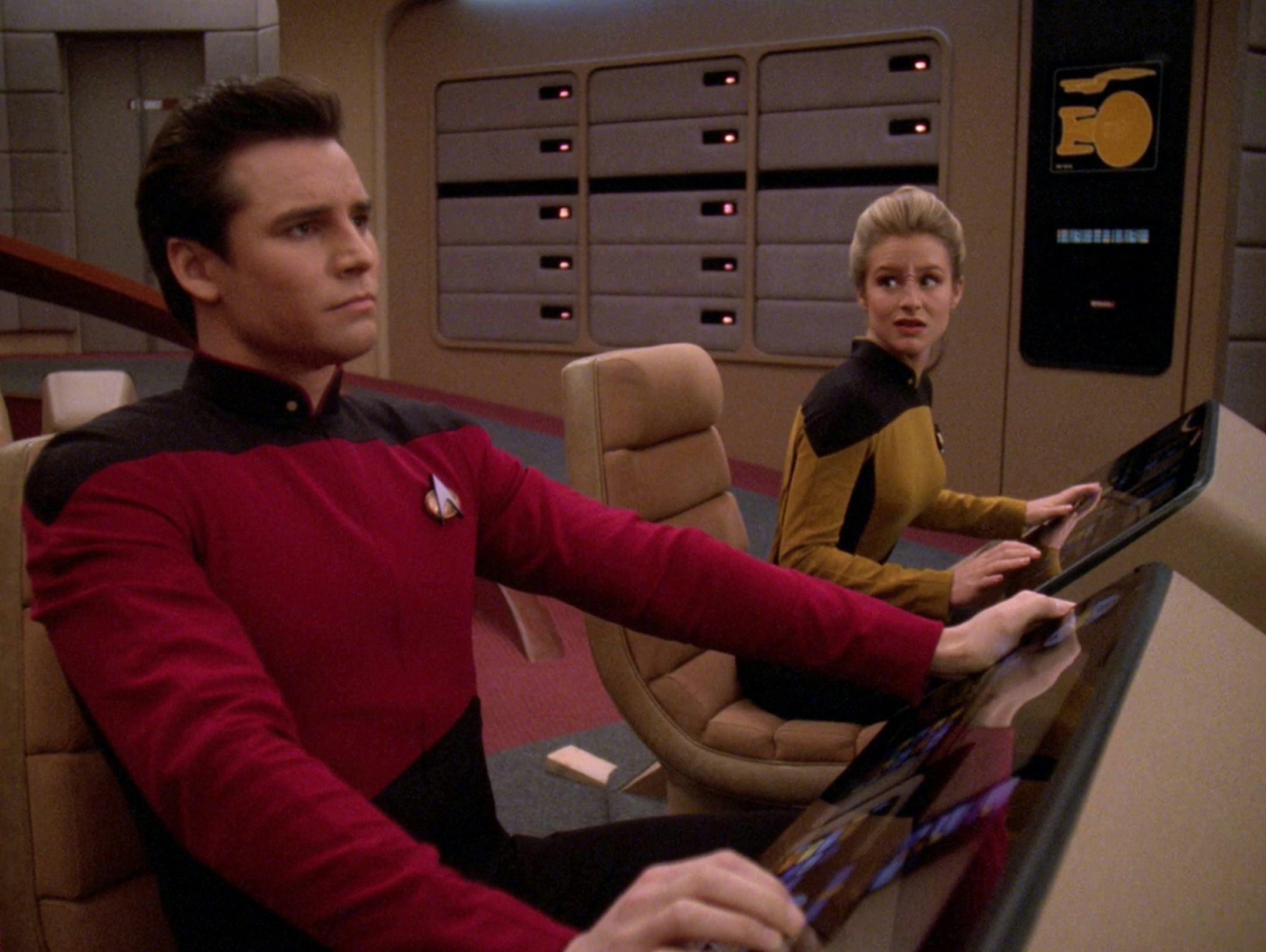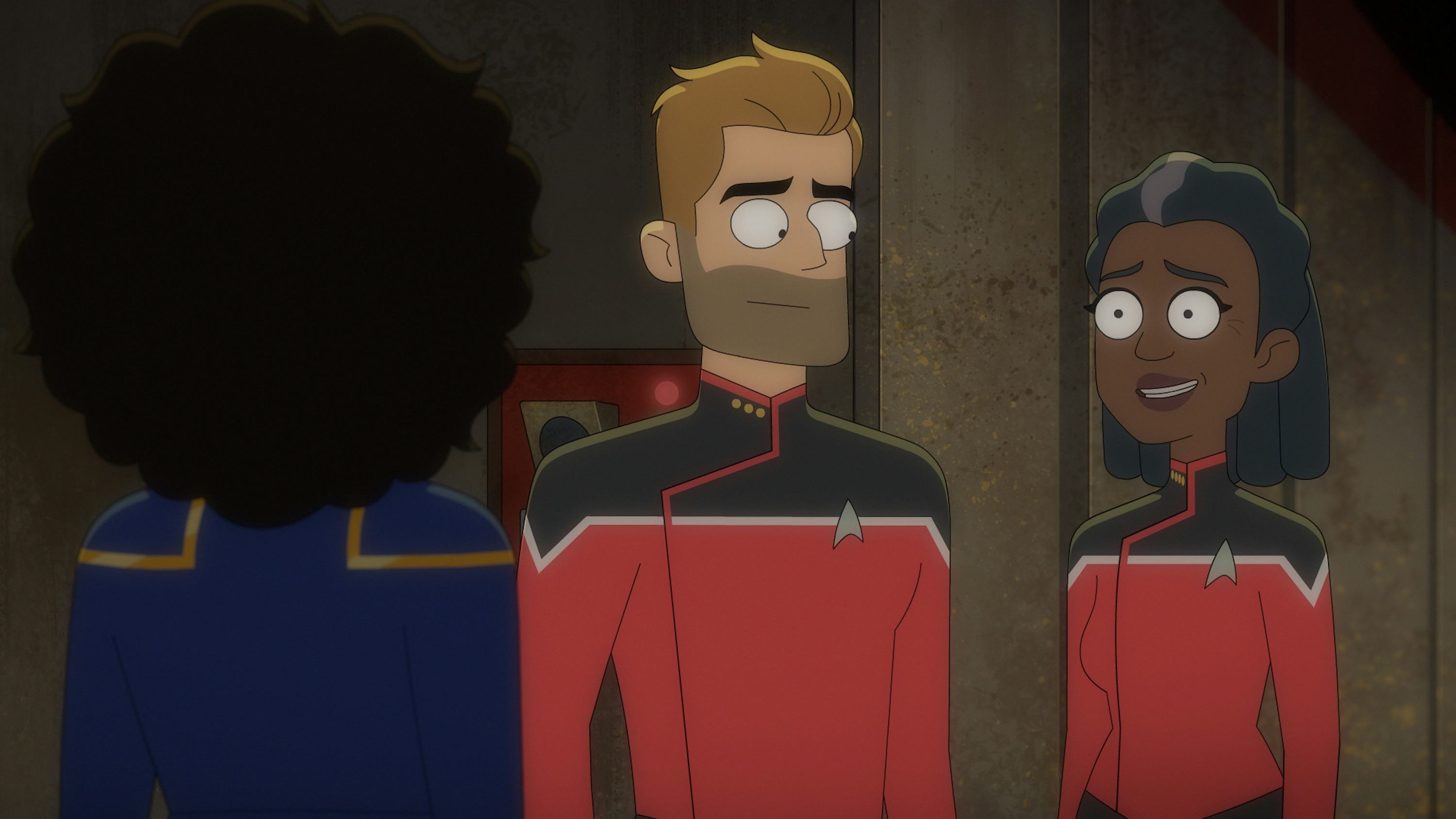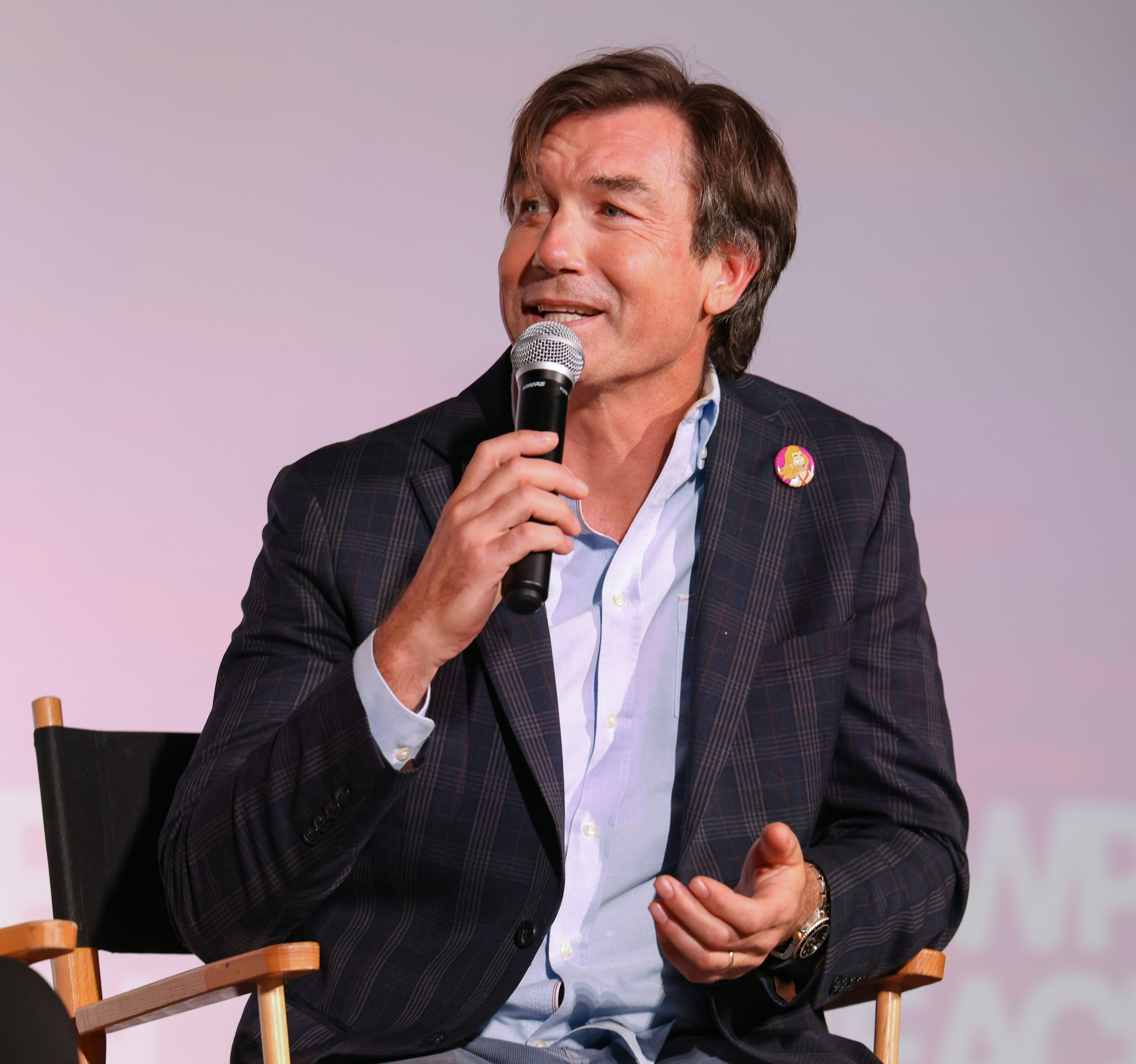
Without a doubt, one of the best episodes in the entire run of Star Trek: The Next Generation is the sweet Season 7 episode, “Lower Decks.” This quieter story shifted the focus away from the primary bridge crew of the USS Enterprise and explored how the junior officers experienced life aboard a starship. This notion expanded our perception of the Star Trek universe, and continued with a theme that TNG had been exploring, arguably, since the episode “The Bonding” in Season 3; that idea being that in this version of Star Trek, the lives of the expendable “red shirt” characters mattered too.
Of course, today, the phrase “Lower Decks” doesn’t just evoke this classic TNG episode. Now, there’s an entire animated comedy series, Star Trek: Lower Decks, that’s taken the ethos of this episode and expanded it into a sort of spiritual sequel to The Next Generation. And as Lower Decks heads into its final season, it has metafictionally remade the original “Lower Decks” with the new episode “Upper Decks.” If your head is spinning, that’s okay. Inverse caught up with Jerry O’Connell, who plays Commander Ransom on Lower Decks, to get a sense of this episode’s relevance, and how it continues to explore all the facets of the Trek continuum.
Spoilers for Star Trek: Lower Decks “Upper Decks” ahead!

The Lower Decks episode “Upper Decks” somewhat obviously flips the script on the initial premise of the entire show. Instead of focusing on the junior officers Mariner, Boimler, Rutherford, Tendi, and T’Lyn, “Upper Decks” shifts the action to the bridge crew; specifically Captain Freeman, Security Chief Shaxs, Dr. T’ana, and Jack Ransom.
“We finally have an episode that takes place in and around the bridge!” O’Connell enthuses. “That’s where the action is. That’s where Star Trek fans want to be. The decisions aren’t made in the Lower Decks.” O’Connell is obviously kidding around a little bit, but in making jokes about which kind of characters are more interesting, he demonstrates the overall brilliance of both Lower Decks and the original TNG episode. Everyone is a main character in their own story, and in Lower Decks, the officers who generally have been main characters in previous Star Trek shows are perceived as the B-Squad.
In the context of “Upper Decks,” this means that if Ransom were on any other Star Trek show, we’d know a lot more about him. And in the biggest denouement of the episode, it’s revealed that Ransom’s seemingly ridiculous meathead behavior conceals a much more complex game. He’s not actually a dumb jock, but he knows certain officers will behave better if they perceive him a certain way.

“Mike McMahan, our creator, really let me know early on how deep Ransom is,” O’Connell explains “On the surface, there’s a lot of machismo and a lot of Riker and stepping over chairs and sitting open-legged. But there’s a depth there and there’s a commitment to Starfleet and a commitment to his lower deckers.”
For O’Connell, this means that although he hams it up with Ransom, the underlying truth of the character isn’t a joke. In the classic “Lower Decks” episode, Sam Lavelle (Dan Gauthier) thinks Riker (Jonathan Frakes) is unrelatable and remote. For the audience, this is jarring, because, throughout the course of TNG, we felt very close to Riker. But if he was your boss, he might seem like a totally different person. Most Star Trek shows adopt the point-of-view of the senior officers, and the proof is right there in the Captain’s Logs that pervade the entire franchise.
What “Lower Decks” did 30 years ago was to flip that point-of-view, and imagine what Star Trek would feel like if the decision-makers weren’t the stars. Since 2020, Lower Decks has expanded on that point-of-view switch, which allows for some of the canon-bending on Lower Decks. As a wise man in a different franchise said, many of the truths we cling to depend greatly on our own point of view. And in “Upper Decks,” Lower Decks basically treats the senior staff officers like they are Lower Deckers.
“There’s a humility and a vulnerability to our characters, too,” O’Connell explains. “These are the best kinds of characters to play, and this is the perfect episode to showcase what I always knew was there.”








